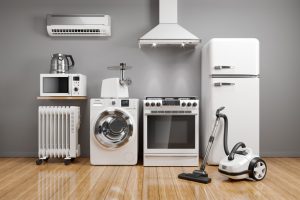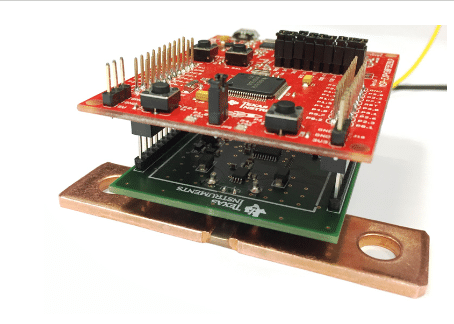
Have you ever found yourself looking at your electric bill and thinking, “Wow, I wonder why it’s so high?”. If so, that question has probably been followed by another: which appliances use the most energy? After all, if you could pinpoint which of your electrical appliances demand the most energy, it would only make sense to use them less often. This way, you could effectively reduce your electric bill- something we’d all like to do.
Today, most homes have 5 to 6 electrical appliances that are deemed essential for everyday life. From there, you can expect a few extras to be thrown in as a matter of comfort. While every appliance consumes energy, the amount of energy they consume isn’t necessarily equal.
Being aware of which appliances use the most energy in your home can help you control energy usage as well as the household budget. That’s why we’ve done the math and come up with an average of how much energy the most common electrical appliances demand. If you’ve ever wondered which of your appliances are responsible for those high energy bills, look no further than this article! Let’s get started.

1. Air Conditioner and Furnace
Believe it or not, your home’s air conditioner and furnace use a whopping 47 percent of your home’s overall energy according to our estimations. Although this percentage can vary based on the individual type of air conditioner and furnace that you have in your home, this is the average amount you can expect for these appliances to demand.
If you’re looking to reduce the amount of energy used by these appliances, consider upgrading an older AC/furnace to a more modern one. More modern AC/furnaces come with energy-saving features to help keep electric bills lower. Luckily, most of the thermostats designed today make it easier than ever to monitor and control the AC/furnace system’s operation in order to better conserve energy.
2. Water Heater
According to our estimations, the average home’s water heater consumes a total of 14 percent of the total energy that is used in a home. That being said, it should be noted that some water heaters are known for consuming more energy than others. A conventional water heater, for example, holds a water supply at all times. For this reason, when someone in the home needs hot water, it’s already ready to go!
A tankless water heater, on the other hand, only heats water as needed. Rather than continually heating a supply of water, the tankless water heater only heats when water is needed and, therefore, saves energy. If you want your home’s water heater to consume as little energy as possible, reducing your electric bill, you should invest in a tankless water heater.
3. Washer and Dryer
Your home’s washer and dryer account for an estimated 13 percent of your home’s energy. When asking yourself how to lower your electric bill in terms of your washer and dryer (appliances that consume a lot of energy), it’s really a matter of asking yourself how often you use them. A homeowner that uses their washer and dryer a few times a day, for example, will use more energy than one that only washes laundry once a week.
To cut costs, either limit the number of loads of laundry you wash each week. Further, you should also try to only use the hot water washing cycle when necessary. These are two fairly easy ways to limit the amount of energy that your washer and dryer are consuming.
4. Lights
While many of us may think that the sheer number of lights in a home would mean that lights are appliances that consume a lot of energy, it’s a bit surprising that lights are so high up on this list. Still, the lights in all rooms of your home (as well as exterior lights) account for a total of 12 percent of your overall energy usage. Luckily, unlike many other items on this list, the energy usage associated with lighting in your home is actually pretty easy to control.
If you want to reduce your electrical bill by cutting down on the energy that lights consume in your home, it’s as simple as doing things like turning off the lights in unoccupied rooms or putting timers on lights so they shut off automatically. Further, you may want to invest in energy-saving light bulbs that can lower the percentage of energy used by lights even more.
5. Refrigerator
Your home’s refrigerator uses 4 percent of the energy in your home. Unlike the other items on this list, reducing energy costs in terms of refrigerator usage isn’t really an option. After all, your refrigerator has to remain plugged in all the time in order to keep your food cold!
While it would be nice to be able to simply unplug our refrigerators to cut down on energy usage, this isn’t realistic. So what can you do? Well, we highly recommend looking into a model of refrigerator that is designed to be more energy-efficient as this can significantly reduce your energy consumption.
6. Oven
Much like your home’s washer and dryer, your oven (which consumes an estimated 3 to 4 percent of your home’s energy) uses only as much energy as your household’s habits demand. While some households have a conventional oven that they rarely use, for example, others find themselves using their oven on a regular basis. That being said, one of the best ways to reduce costs when it comes to your oven’s energy consumption is to have a well-insulated oven with a secure door that doesn’t allow heat to escape as it is used. This makes your oven much more energy-efficient.
7. Television
Your home’s television consumes an estimated 3 percent of your home’s energy each month. Unlike a couple of other appliances on this list, your home’s television can easily be unplugged when not in use. This makes it a bit easier to reduce the amount of energy they consume. Don’t let your television be a vampire appliance- an appliance that drains energy even when it’s not in use. Unplug when you can! Your electric bill will thank you.
8. Dishwasher
Accounting for an estimated 2 percent of your home’s energy each month, residential dishwashers come in low on the list when thinking about which appliances use the most energy. There are many different factors that can impact just how much energy your dishwasher consumes, however. For example, you may run your dishwasher once a day or only once a week. Further, your home may have come equipped with a dishwasher but you and your family prefer to not use it, washing everything by hand. These are all things to consider when it comes to just how much energy your home’s dishwasher demands.
9. Computer
Finally, your home’s computer demands just 1 percent of your home’s energy. Computers are low on the list of appliances that consume energy each month and you should keep in mind that some households don’t even have a laptop or desktop computer, browsing the web through a phone or tablet instead. Households that don’t have desktop computers may want to consider putting their devices in sleep mode or unplugging it at night when it isn’t in use to save energy.
Save Energy With Our Raleigh Electricians!
Now that you know estimates of how much energy appliances in your home consume on a monthly basis, you’re likely looking for any way possible to lower your energy bill. If so, you can count on our Raleigh electricians to help you determine the changes that can be made in your home to reduce energy use. Contact us today and let us help you make your home and its appliances more energy-efficient! Just give us a call at (919) 359-1017.
To learn more about how to calculate how much energy your home’s electrical appliances consume, use Energy.gov’s appliance and electronic energy use calculator!






